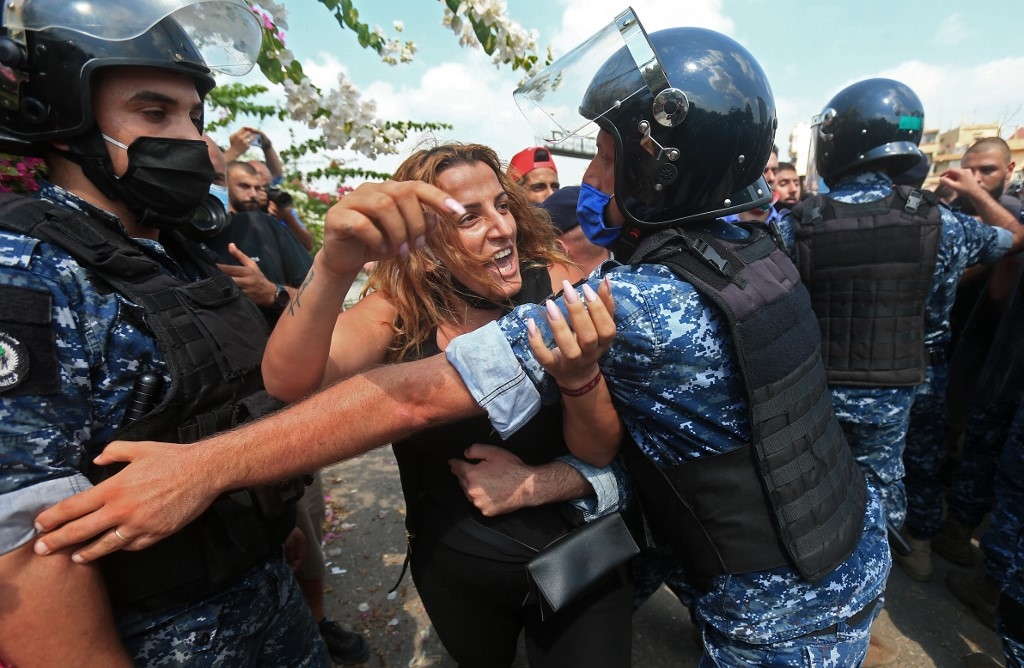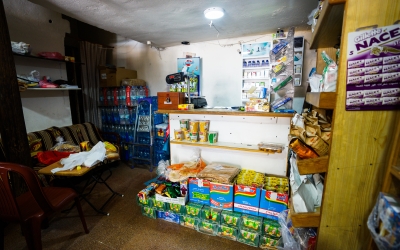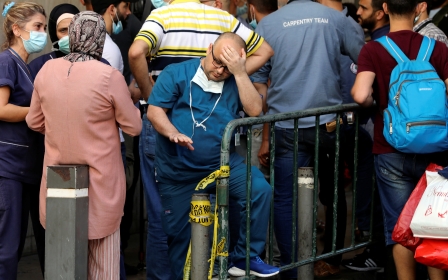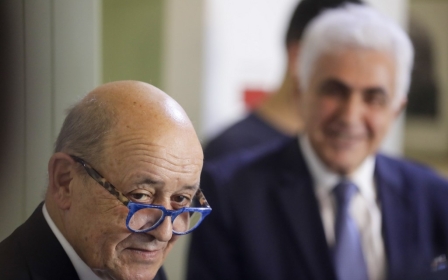Lebanon: Protesters attempt to storm Energy Ministry amid crippling power cuts

Lebanese security forces repressed demonstrators on Tuesday as the latter tried to storm the building of the Energy Ministry to denounce the mass power cuts that have plunged entire areas of the country into darkness.
Protesters pushed past a barbed-wire fence near the ministry's Beirut headquarters, but were dispersed by baton-wielding security forces.
One protester, speaking on the behalf of the group, said they would block the entrance to the ministry for 24 hours.
"Your continued presence will plunge Lebanon into total darkness," he said, urging Energy Minister Raymond Ghajar to step down.
New MEE newsletter: Jerusalem Dispatch
Sign up to get the latest insights and analysis on Israel-Palestine, alongside Turkey Unpacked and other MEE newsletters
The protest comes one day after Foreign Minister Nassif Hitti resigned over the government’s performance.
A self-proclaimed technocratic cabinet had been assembled in January to tackle the country’s myriad economic and political issues, but has so far struggled to make an impact.
The country is in the midst of an economic crisis, with its currency losing 80 percent of its value since late 2019 and food prices doubling.
Two power bills
The crisis-hit country's ailing power sector receives one of the largest slices of the government's budget, after debt-servicing and public-sector salaries.
But hours-long power cuts have persisted over the past three decades, despite repeated promises of uninterrupted supply from consecutive governments.
As a result, the vast majority of Lebanese pay two power bills: one to a ravaged state electricity company; another to expensive private generator companies for three to 12 hours' power a day when the mains are cut.
Since the start of summer, outages have lasted up to 20 hours a day in some areas, due to a spiralling economic crisis that has hampered fuel imports.
This has fuelled the grievances of a protest movement, mobilised since October to demand the removal of a political class deemed incompetent and corrupt.
According to consultancy firm McKinsey, Lebanon has the world's fourth-worst electrical supply, ranked only above Haiti, Nigeria and Yemen.
The state-run electricity firm has cost the government more than $40bn since the 1975-1990 civil war, despite providing only a fraction of the country's power needs, draining a country now grappling with its worst economic crisis in decades.
International donors have pointed to electricity reform as a key condition to unlock assistance, including an $11bn aid package for Lebanon pledged at a Paris conference in 2018.
The government approved a new electricity plan promising uninterrupted supply in April, but it has yet to be implemented.
Middle East Eye delivers independent and unrivalled coverage and analysis of the Middle East, North Africa and beyond. To learn more about republishing this content and the associated fees, please fill out this form. More about MEE can be found here.





